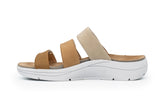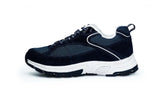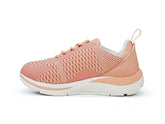Ingrown Toenail Dilemma: Will It Heal on Its Own or Need Professional Care?
An ingrown toenail, a common foot woe, occurs when the edge of a toenail curls and grows into the adjacent skin. Typically affecting the big toe, this discomfort often arises from improper nail trimming or tight shoes. While mild cases can be managed at home, certain situations necessitate professional care.
Causes of Ingrown Toenails
- Improper Nail Care: Trimming nails too short or with tapered corners.
- Footwear: Wearing narrow or high shoes that crowd the toes.
- Natural Nail Shape: Toenails that naturally curve down or inward.
- Trauma: Injuries affecting the toe or nail bed.
Self-Care for Mild Cases
For early-stage ingrown toenails, self-care strategies can be effective:
- Avoid Cutting the Nail: Letting the nail grow naturally.
- Maintain Cleanliness: Keep feet clean and dry, avoiding tight shoes.
- Warm Soaks: Twice-daily warm Epsom salt baths.
- Antibiotic Cream: Apply to reduce infection risk.
- Protective Bandaging: Covering the affected area.
- When to Seek Professional Care:
- Diabetes or Poor Circulation: Individuals with diabetes or poor circulation should seek professional care promptly.
- Persistent or Worsening Cases: If the ingrown toenail persists or worsens despite self-care efforts.
- Signs of Infection: Pain, inflammation, redness, warmth, or drainage from the nailbed.
Professional Treatment Options:
- Nail Trimming and Gauze Placement: Encourages normal nail growth.
- In-Office Surgical Treatment: Partial nail avulsion to address problematic nails.
- Preventive Strategies: Recommendations for individuals prone to ingrown toenails.
Check out our extensive collection of shoes for arthritis to find the best shoes for your feet.
Look through our most-sought-after styles to get the right pair for you today with DiabeticShoe.in.
For diabetic footwear that solves numerous foot issues, DiabeticShoe.in is a top choice for foot-care footwear due to its focus on comfort and practicality.
Check out our shoe collection for options tailored to your needs.








